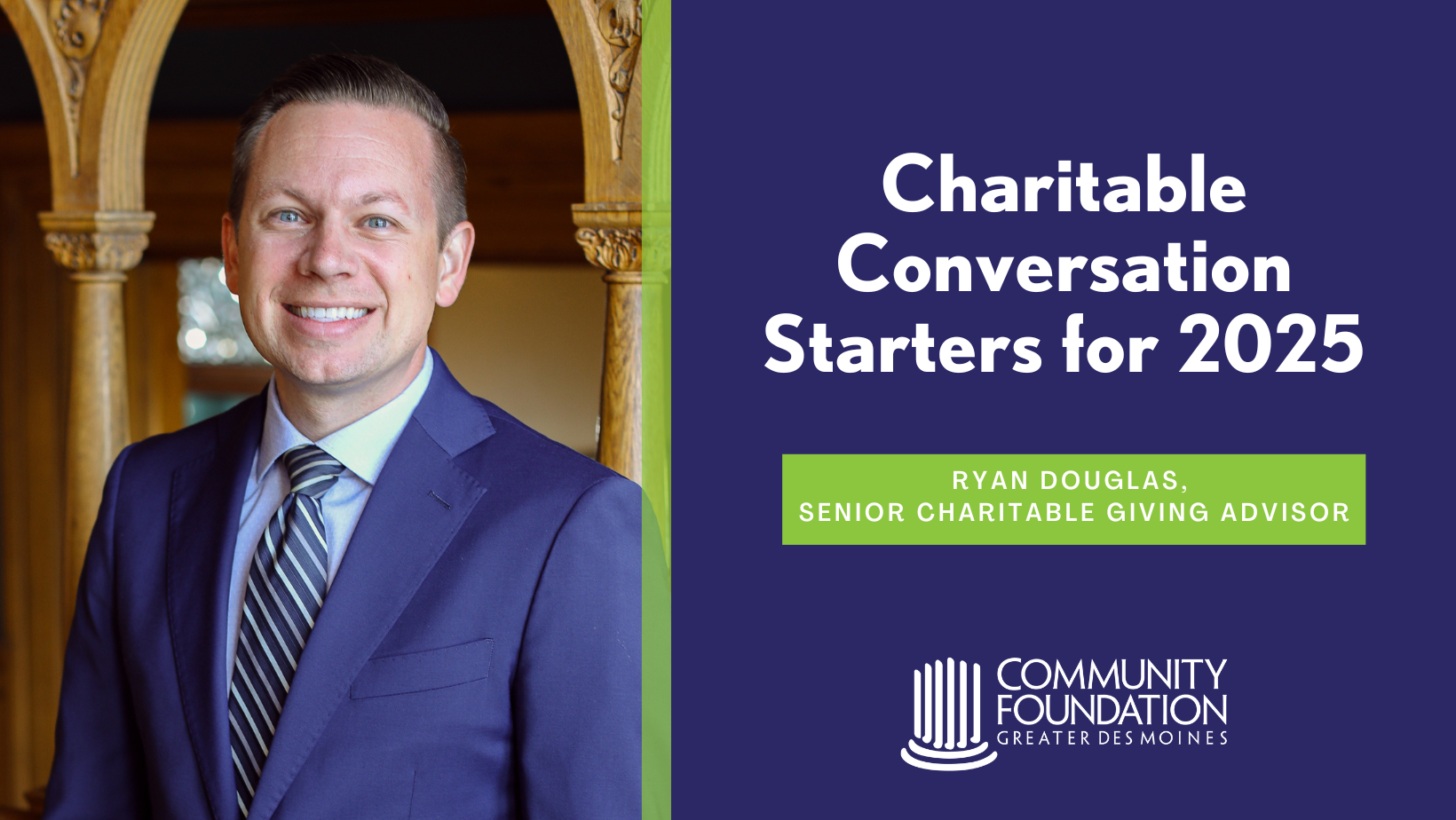Charitable Conversation Starters for 2025
Feb 24, 2025

According to the 2023 U.S. Trust® Study of High-Net-Worth Philanthropy, 85% of affluent households gave to charity in 2022. Charitable giving offers both emotional and rational upsides to your clients. Advisors who lean into these benefits stand a strong chance of being viewed by their clients as effective, impactful and able to deliver well-rounded services to improve clients’ lives and give them peace of mind.
Here are three common ways to approach conversations about charitable giving:
For Those Who Are New to Giving:
According to the 2023 U.S. Trust® Study of High-Net-Worth Philanthropy, 4 in 5 younger affluent households (> 42 years old) gave to charity in 2022. Younger households are nearly twice as likely as older donors to say they want to become more knowledgeable about integrating their values and charitable goals into their overarching wealth management plans.
By walking through our Giving Guide with your clients you can help them align their charitable goals with their values. The Giving Guide helps your clients strategically consider their charitable giving now and into the future. These self-guided exercises are designed to help your clients determine how best to maximize the impact of their giving and equip them with questions as they engage with charitable organizations.
For Those Who Want Tax-Saving Opportunities:
For those with a focus on tax-saving opportunities, you can prepare for your meeting with a variety of resources about the Community Foundation and learn how charitable giving may be a fit for your clients' financial plans. From the Endow Iowa Tax Credit to IRA Charitable Rollover, there are many avenues your clients can use to save on taxes with a variety of assets.
For Those Who Want to Make a Localized Impact:
You don’t have to be an expert on every charitable giving technique or local charitable entity and cause to succeed. Please reach out anytime you are working with a client who is charitably inclined. Our highly trained staff can help navigate both the tax planning complexities as well as the emotional side of giving to ensure that your clients achieve their financial goals as well as their goals for making a difference in our communities.